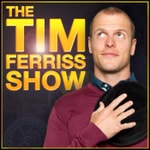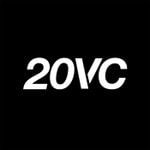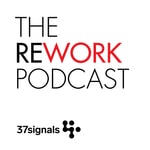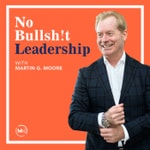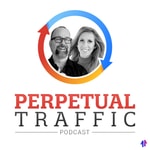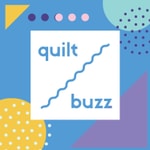It's New Orleans: Out to Lunch – Details, episodes & analysis
Podcast details
Technical and general information from the podcast's RSS feed.
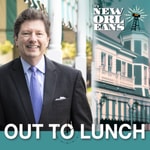
It's New Orleans: Out to Lunch
itsneworleans.com
Frequency: 1 episode/9d. Total Eps: 534

OUT TO LUNCH finds economist and Tulane finance professor Peter Ricchiuti conducting business New Orleans style: over lunch at Columns in Uptown New Olreans. In his 14th year in the host seat, Ricchiuti’s learned but uniquely NOLA informal perspective has established Out to Lunch as the voice of Crescent City business. You can also hear the show on WWNO 89.9FM.
Recent rankings
Latest chart positions across Apple Podcasts and Spotify rankings.
Apple Podcasts
🇺🇸 USA - businessNews
25/07/2025#98🇺🇸 USA - businessNews
24/07/2025#99🇺🇸 USA - businessNews
01/06/2025#93🇺🇸 USA - businessNews
30/05/2025#98🇺🇸 USA - businessNews
29/05/2025#96🇺🇸 USA - businessNews
28/05/2025#69🇺🇸 USA - businessNews
27/05/2025#84🇺🇸 USA - businessNews
22/05/2025#98
Spotify
No recent rankings available
Shared links between episodes and podcasts
Links found in episode descriptions and other podcasts that share them.
See all- https://omnystudio.com/listener
835927 shares
- https://zoom.us/
664 shares
- https://www.coinbase.com/
112 shares
RSS feed quality and score
Technical evaluation of the podcast's RSS feed quality and structure.
See allScore global : 43%
Publication history
Monthly episode publishing history over the past years.
Seeds of Change
samedi 17 mai 2025 • Duration 30:40
You may have heard people who started up businesses talking about how they found investors. Typically, they’ll say something like, “We pitched our idea and raised X amount.”
It sounds simple. But when you dig a little deeper, delivering a successful pitch to investors is not quite as straightforward as describing your business as “The Uber of dating” or “Air BnB for pets.” Financing a startup requires convincing investors or lenders they’re taking a worthwhile risk.
Crafting this calculated risk into a convincing sales pitch - which can be in the shape of a business plan or a presentation known as a “pitch deck” – is a special skill. And it’s what Camille Terk does at her company, Terk Consulting.
Tey Stiteler came up with her idea for a business after she and her partner bought 4 acres of land near Poplarville, Mississippi.
Tey was looking for a reason to quit her desk-job and work outdoors. With absolutely no background in farming or horticulture, Tey started growing flowers. She grew a lot of flowers. And started meeting other people who grew flowers.
Tey began selling her flowers at markets and pop-ups around New Orleans. Then in 2024 when she went all-in and opened a brick and mortar business on Camp Street. It’s called, The Secret Spot Flowers.
There’s a question I’ve heard interviewers ask people. It’s, “If you could go back in time to when you were starting out, what would you tell your younger self?” I don't ask either Camille or Tey this question but there’s no doubt that if they, and most people, knew what roadblocks and curveballs and just downright weird, unexpected things were going to come up when they started down the path of founding and running a business, they might question their optimism and the wisdom of blind faith.
On the other hand, when things work out, as they have so far for Tey and Camille, the ups and downs become a bunch of great stories.
Out to Lunch was recorded live over lunch at Columns in Uptown New Orleans. You can find photos from this show by Jill Lafleur at itsneworleans.com.
See omnystudio.com/listener for privacy information.
Tipitina Bienville
dimanche 11 mai 2025 • Duration 33:30
There are countless myths and reports throughout human history of places where spirits come down to earth. Where the intangible meets the material world. In the US, there are few places that better demonstrate this crossroads than New Orleans.
People have tried to explain how the joy of living here triumphs over everyday things like dysfunction and potholes, with slogans like “The Big Easy,” and “The city that care forgot.”
One of the locations you can witness this triumph of the spirit is the corner of Napoleon Avenue and Tchoupitoulas Street. No, not Rouse’s. Across the street. At Tipitina’s music club.
Keith Spera from the Times Picayune has called Tipitina’s, “a sacred space.” Dr. John called it, “The church of the funky saints.” And Jazz Fest co-founder Quint Davis has referred to it as, “The Vatican of New Orleans music.”
Tipitina’s was founded in 1977 by a bunch of young people who knew nothing about business, music promotion, running a restaurant, a bar, or a radio station – it was the original home of WWOZ. These folks just wanted a place that celebrated New Orleans musicians and gave them a stage to play on - and a guarantee they’d actually get the money that people paid to come see them.
In 2018, history repeated itself when the members of the New Orleans band Galactic bought Tipitina’s.
Musicians are not typically known for their firm grasp of the music business, but the doors are still open and the revenue streams have diversified, including a record business called Tipitina’s Record Club.
Robert Mercurio is the bass player in Galactic, part owner of the legendary Tipitina’s music club, and Co-Founder of Tipitina’s Record Club.
Besides music, there’s another strand of New Orleans where art meets commerce, and where, literally, the rubber meets the road. Motorcycle design and manufacture. It’s a lot less celebrated than our place in the history of music, but if you know a thing or two about motorbikes you’ll know my other lunch guest today, J.T. Nesbitt.
J.T designed and was part of the team that produced motorcycles called The Wraith, the G2 Hellcat and The Magnolia Special, for Confederate Motorcycles, and later an electric bike, The Curtiss One. They’re all elegant works of art and powerful machines.
Today, JT is designing and building a new line of bikes under the banner of his own company, Bienville Studios. Currently he’s building a bike called the Magnolia 4. We find out all about it in this edition of Out to Lunch but for now all you need to know is Jay Leno has one on order.
The Tipitina’s logo with the half-peeled banana is a New Orleans icon. For locals and live music lovers everywhere it’s as recognizable as the Nike swoosh or the Mercedes hood ornament. Nike and Mercedes spend millions of dollars each year to keep their brands in front of people. Tipitina’s brand is spread mostly by people paying them – to buy a T-shirt or baseball cap. The lesson being, when you have a product people genuinely care about and cherish, it sells itself.
The same philosophy can be applied to the motorbikes coming out of Bienville Studios.
Robert Mercurio and J.T. Nesbitt are both at the helm of very different but equally unique and valuable New Orleans pieces of art and commerce.
Out to Lunch was recorded live over lunch at Columns in Uptown New Orleans. You can find photos from this show by Jill Lafleur at itsneworleans.com.
See omnystudio.com/listener for privacy information.
Happy Mardi Gras
lundi 10 février 2025 • Duration 28:40
In most cities in the US, after you’ve blown it out on New Year’s Eve, if you want another socially approved excuse to party you have to wait a bit. Memorial Day is 5 months away. At best you might be able to get away with Spring Break – that’s about 4 months.
Here in New Orleans, you have less than a week till the next round of society-sanctioned excessive eating, drinking and socializing begins. January 6th is 12th night, the official beginning of Mardi Gras. That’s when the first parades begin. And, traditionally, when bakers start selling king cake.
Since 2019, it’s also opening day of a king cake lover’s paradise: King Cake Hub.
King Cake Hub is Jennifer Samuels’ 2-month a year business. It’s a single location where you can get practically every variety of king cake available in New Orleans. Currently there are 80 of them. They’re baked by 25 different bakers. And the King Cake Hub collection is curated - meaning Jennifer tastes and approves every king cake.
New Orleans - a city on the banks of the Mississippi River - takes its name from Orléans, a city on the banks of the Loire River, in France.
We can argue about who New Orleans’ most famous citizen is – probably Louis Armstrong - but undoubtedly Orléans’ most famous citizen is The Maid of Orleans. Her name was Jeanne d’Arc and she became known to the English-speaking world as Joan of Arc.
Joan of Arc’s birthday is January 6th. Which is also, as I mentioned, 12th night, the first night of Mardi Gras. It was that fact, and the feeling that 12th night wasn’t being celebrated with enough inclusive diversity in New Orleans, that led Amy Kirk Duvoisin to found the Joan of Arc Project.
The flagship activity of the Joan of Arc Project is the Joan of Arc Parade, on 12th night. It’s a walking parade set in Joan’s era, the 1400’s, with medieval costumes, music, characters on horseback, and roving entertainers like jugglers and stilt walkers. The paraders have Medieval throws – and king cake.
If you don’t know anything else about New Orleans, you know we’re the home of Mardi Gras – the biggest, rowdiest, annual street party in the country.
If you live in New Orleans, Mardi Gras is more than just a party. It’s more than just a whole lot of parties. It’s part of the fabric of the city – from our culture to our economy. And, like other aspects of culture and economics, it’s not static. It changes. And evolves. These evolutions are mostly the result of innovations that come from the creative minds of New Orleanians, like Jennifer Samuels and Amy Kirk Duvoisin.
Out to Lunch was recorded live over lunch at Columns in Uptown New Orleans. You can find photos from this show by Jill Lafleur at itsneworleans.com.
See omnystudio.com/listener for privacy information.
Booze and Veggies
mercredi 23 février 2022 • Duration 33:50
In the early 20th Century, an entrepreneur by the name of Martha Matilda Harper had a hairdressing salon where she taught women her method of cutting hair and sold hair care products she made herself.
The salon did so well she got other women to open another location where they replicated her first salon. That was so successful she did it a third time, and after a few years Martha had started up 500 salons that were using her methods and selling her hair products. In the process she invented the concept of franchising.
Today you can buy into any number of franchises. Most notable are household names like McDonalds, Ace Hardware, and ReMax. But there are thousands of others, including a franchise called Tap Truck.
Booze
Tap Trucks are kind of like food trucks, except they’re set up like a bar, and sell drinks. Unlike food trucks, Tap Trucks aren’t big boxes on wheels. Each Tap truck is a totally renovated, tricked-out, vintage truck.
The two Tap Trucks in New Orleans are a 1951 GMC Panel Truck, and a 1951 Chevy. The local trucks are affiliated with the restaurant, Central City Bar B Q. And the New Orleans operator of Tap Truck is Lenaye Doussan.
Veggies
It’s funny how things go in cycles. When industrialization came to the US and people moved away from the countryside, they found themselves living on pieces of land that were too small for a cow or a garden. So nearby farmers delivered them milk and vegetables.
Then, when there was a big enough concentration of people living in suburbs and zooming around in cars, nobody wanted to be old-fashioned and have food delivered from a farm. Not when you could drive your station-wagon to a supermarket.
Today we’ve come full circle. We want everything delivered. And local, organic, “farm to table” is the ideal. A company called Top Box Foods is making that ideal a reality in New Orleans.
Connor Deloach is co-founder and Executive Director of Top Box Foods.
Delivery
Delivery just makes sense. Economically and environmentally.
On any given day, instead of 500 of us getting into 500 cars and going out for groceries, a handful of vehicles can deliver that same amount of food to all of those people. And they can deliver food to people who don’t have transportation. Or who live in neighborhoods that don’t have easy access to fresh or locally-sourced produce and groceries.
Although drinking alcohol might not be as essential as eating fruit and vegetables, we’ve come to learn that in our stress-filled lives, entertainment and enjoyment are indeed a vital part of our existence. So, whether we’re talking about Top Box Foods delivering fresh produce and local groceries, or Tap Truck delivering drinks and a good time, delivery just makes sense.
Out to Lunch is recorded live over lunch at NOLA Pizza in the NOLA Brewing Taproom. You can find photos from this show by Jill Lafleur at our website itsneworleans.com. And that's where you can also find more lunchtime conversation about delivery with the founder of Waitr.
See omnystudio.com/listener for privacy information.
Jazz Fest Sig Fest
mercredi 16 février 2022 • Duration 34:06
Mardi Gras celebrations started in New Orleans in the 1730’s. The first Jazz Fest was 1970. Today, we commonly use the term “Mardi Gras and Jazz Fest” to talk about two events of equal importance.
It says something about the significance of the New Orleans Jazz and Heritage Festival that in a handful of decades it’s grown from a small gathering of a few hundred music fans to attaining the same iconic, and economic, status as the nearly 300-year-old tradition that more than anything else defines New Orleans.
Jazz Fest attracts hundreds of thousands of visitors to New Orleans every year. It reportedly pumps $350m into the local economy. And then there’s the not insignificant amount of money the event itself generates. It’s one of the most successful music festivals in the world. According to publicly available tax records, Jazz Fest’s gross revenue these days is tens of millions of dollars.
The reason Jazz Fest’s finances are public information is because the New Orleans Jazz and Heritage Festival is a non-profit event. It’s owned by a small but extraordinarily prolific 501(c)(3) organization called The Jazz and Heritage Foundation.
The Executive Director of the Jazz and Heritage Foundation is Don Marshall.
Jazz Fest is undeniably New Orleans’ music headliner, but we have other music festivals throughout the year. French Quarter Festival is the biggest of the city’s free festivals, and in the recent past the biggest ticketed music festival, after Jazz Fest, has been Voodoo Fest.
Sig Greenbaum was one of the architects of the original Voodoo Fest, and for a couple of its biggest years was its co-director. You might remember Mr. Greenbaum from when he was a radio personality known simply as “Sig” on alternative music station 106.7 The End. If you’re a gamer, you might know Sig as the Head of Live Events for the Los Angeles-based Overwatch League, the e-sports operation he built from the ground up into an international live sports league with more than 50 million players.
Today, Sig Greenbaum is the owner of his own live events production company called Sigfest Events. And he’s the founder of an event that might become one of the best things that’s happened for a long time to local musicians, called Nola x Nola.
The cultural economy is the life-blood of New Orleans. Without our music, our musicians, and our music festivals - with apologies to Tennessee Williams - we’d just be Cleveland.
There is no argument that the single biggest thing that has ever happened to promote New Orleans music to the world is Jazz Fest. It takes hundreds of people to produce Jazz Fest every year, but ultimately the buck stops at Don Marshall's desk. Don is typically modest and doesn’t often step into the limelight, but once in a while someone needs to tell him how much New Orleans appreciates him.
And we look forward to the future of NOLA x NOLA and to finding out what other productions Sigfest Events has in store for us.
Out to Lunch is recorded live over lunch at NOLA Pizza in the NOLA Brewing Taproom. You can find photos from this show by Astor Morgan at our website itsneworleans.com. And you can check out this show about our cultural economy with Andrew Duhon and Musa Alves.
See omnystudio.com/listener for privacy information.
Spice Wine
mercredi 9 février 2022 • Duration 31:50
In our market-driven economy, we have an innate belief that price and value are connected. The more valuable something is, the more it costs. But strangely, it doesn’t always work that way. Take sodium for example. Sodium is vital to our very survival as human beings. It’s essential for nerve and muscle function, and it plays a role in the body’s control of blood pressure.
Most of our sodium comes from eating sodium chloride, better known as salt. We add salt to practically every food item we make. And - maybe because the human body is designed this way to keep us alive - when salt is missing from food, we think it doesn’t taste right. And yet, despite the fact that it’s one of the most valuable substances in our lives, next time you’re at the supermarket take a look at the price of salt. It’s extraordinarily cheap.
Salt is a spice. Like salt, other spices are relatively cheap too. Because spices sell in small quantities and have low profit margins, it’s difficult for a small spice company to survive.
Barkley Rafferty is co-founder of Royal Merchant Trading, a New Orleans spice company whose plan for survival is a brick-and-mortar storefront. A spice store. In the Garden District, in a shopping center called The Rink.
Although the Murray family’s New Orleans’ roots go back to the 1700’s, in those 300 years, nobody in the Murray family made wine. In fact, very few people in New Orleans have ever made wine. After all, grapes don’t grow here.
In 2010 the Murray family bought a vineyard in Sonoma, California. The plan was to use the house on the property as a vacation home, and lease the grapevines to people who know something about making wine. That plan didn’t exactly work out. 300 years of inexperience was quickly dispensed with and today the Murray family make 6 wines. Three cabernets, a Zinfandel, a Chardonnay and a rose – under the distinctly New Orleans label, Flambeaux Winery.
Flambeaux Winery’s wines are sold across the country in every state. And they’ve been recognized in all sorts of important places, including a Best Wine award from the prestigious Food & Wine magazine.
New Orleanian Stephen Murray Jr. still doesn’t refer to himself as a wine-maker, preferring the title “Wine Ambassador.” Stephen claims that while most of his family is on the production side of the business, he’s on the consumption side.
When you start a business there’s no guarantee it’s going to work. The one thing you can guarantee, however, is you’re going to work.
You work long hours, often including nights, weekends, and holidays. And you invariably find yourself having to come up with solutions to a myriad of problems you never knew existed.
That’s why the single most common piece of guidance to people starting a new business is, “Find something to do you really love.” Barkley Rafferty and Stephen Murray are both great examples of the benefits of taking that simple business advice. And although happiness isn’t a line item on a balance sheet, it’s definitely a contributing factor to over-all success.
Out to Lunch is recorded live over lunch at NOLA Pizza in the NOLA Brewing Taproom. You can find photos from this show on itsneworleans.com by Jill Lafleur.
And while you're making dinner with spices from Royal Trading and sipping on your Flambeaux wine, check out this podcast about the future of charging your cell phone and your EV.
See omnystudio.com/listener for privacy information.
Successful Exit
mercredi 2 février 2022 • Duration 41:15
The beginning of anything is the hardest part. The first day of school. Your first week in a new job. Or the first 12 months of a new business.
According to the Small Business Association, 20% of new businesses fail in their first year. About 50% fail in the first 5 years. And after 10 years, only around 30% of businesses are still going.
Of that 30%, about one quarter have what is called a “successful exit.” A successful exit is when your business is doing so well that someone buys it off you -- for a price that makes all your hard work worth it.
These percentages make it sound like, if you start a business, you have a pretty good chance of a successful exit. Actually, you don’t. When you do the math, your chance of getting from startup to successful exit is 0.075 %. In other words, close to zero. Which makes what happened in New Orleans in 2021 so extraordinary.
In the space of a few months, we saw three stupendous successful exits.
First up was Turbosquid. Turbosquid is an online marketplace for buying and selling 3D images and models that are used in everything from video games to TV commercials. The company was one of the earliest successful tech startups in New Orleans. It was founded in 2000. In 2021, co-founder Matt Wisdom sold Turbosquid to a company called Shutterstock, for $75m.
Next up was Levelset.
Levelset is a software-based company in the construction industry. Basically, it acts as a contractual meeting place for contractors and the many subcontractors on a construction site.
Levelset’s function is managing all of the financial obligations on a construction project, so that everyone gets paid, and gets paid on time. They secure and facilitate almost $2B in payments every month.
Levelset started life with the name zLien. Scott Wolfe Jr, a local New Orleans real estate attorney, started the company in 2011. In 2021, Scott sold Levelset to a company called Procore - for $500m.
To round out our spectacular 2021, there was Lucid.
Lucid is a New Orleans company that specializes in conducting, compiling, and analyzing consumer research. The company started out life in 2010, as Federated Sample. In 2015 it changed its name to Lucid. And in 2021 Lucid was sold to a Swedish market research firm, called The Cint Group - for $1.1B
The founder and CEO of Lucid is Patrick Comer.
For many years, the New Orleans economy was firmly rooted in the oil and gas industry. When big oil left the city, it seemed like only hospitality and tourism could flourish here.
Then, a little after the turn of the 21st century, New Orleanians learned a new term: “Tech startup.” We saw technology companies starting up, and growing, with the help of business incubators like Idea Village and Propeller.
At the same time, we were watching Silicon Valley in California. As we witnessed the success of venture-capital-driven tech companies that came out of there, people here in New Orleans started asking, “Where’s our Google or Facebook?”
Well, in business terms, it hasn’t taken long to answer that question. In just 10 years we’ve seen the successful exits of three very impressive local companies that were built here from scratch: Turbosquid, Levelset, and Lucid. And it seems like, rather than having reached what 10 years ago we considered the pinnacle of achievement, we’re realizing that what we’ve actually reached is a new plateau. A new basecamp from which we can continue climbing.
Matt, Scott, and Patrick's incredible achievements are not only an inspiration to other entrepreneurs, they’re providing a foundation to help build the next generation of New Orleans businesses.
Out to Lunch is recorded live over lunch at NOLA Pizza in the NOLA Brewing Taproom. You can photos from this show by Jill Lafleur at our website itsneworleans.com. And you can meet a couple of the next generation of entrepreneurs and find out about their tech startup, Bloks, "the Wix of apps" that lets you build your own app.
See omnystudio.com/listener for privacy information.
The Path to Earth's Energy Future Runs Through New Orleans
mercredi 26 janvier 2022 • Duration 35:56
Every single automobile manufacturer in the world is moving toward EV’s - electric vehicles. Some car companies have stopped developing internal combustion engines altogether. Others have set target dates for when they expect to be switched over to delivering only EV’s.
What this means is, eventually every car and truck on the road is going to run on batteries. Currently, the most common battery is Lithium-ion. However, like the fossil fuel it’s on the way to replacing, Lithium has to be excavated from the earth. That sets up the obvious issue of supply, which is further complicated by the geo-politics of where exactly on Earth Lithium exists.
An alternative to Lithium is a Sodium-ion battery. Sodium is readily available everywhere and transitioning will be a relatively painless evolution. Companies that currently make Lithium batteries will easily be able to switch over to making Sodium batteries.
But, even if we do switch to sodium, how exactly do we charge all these millions of batteries up? Right now, to fully charge your car battery takes between 30 minutes and a couple of hours. And, unfortunately, there is no other material or element on Earth to make batteries with that would make charging faster.
And that’s why Dr. Michael Naguib invented it. It’s a material he calls Mxene – which is pronounced "maxine."
Mxenes are taking the science world by storm. Scientists around the world are working on developing Mxene technology. Why? Because when a Mxene is employed in the manufacture of a sodium battery, the battery can be fully charged in a matter of minutes.
The significance of this discovery is impossible to overstate. The coming revolution that Mxenes are ushering in is extraordinary. What is equally extraordinary is, Dr. Michael Naguib, the person who discovered Mxenes, is a professor of science and engineering at Tulane University in New Orleans.
Okay, so that’s your battery powered vehicle. What about your house? The good news there is, you don’t have to wait for a revolution. You can get your house off the electric grid. Today. With solar panels.
The main obstacle to actually doing that is cost. Most of us can’t afford to get solar panels installed on our home. That’s where Tom Neyhart comes in. Tom is founder and CEO of a company called PosiGen.
PosiGen focuses specifically on bringing solar power to low and moderate-income families, and communities of color. The company is headquartered in New Orleans, but only about 20% of their business is in Louisiana. Their main markets are Connecticut, New York and New Jersey. They’re also in Florida, Philadelphia, and Mississippi. These are places, unlike Louisiana apparently, where there are government-driven incentives to switch to solar.
Whatever your reasons for listening to Out to Lunch, it's unlikely that you're turning to this show expecting it to reveal planet Earth’s path to the future of energy. Nor would you, in all likelihood, suspect that the path to a fossil-fuel-free, battery-powered-planet runs through Uptown New Orleans.
But, thanks to Michael Naguib's groundbreaking work from his perch at Tulane University, that’s where we are. And Tom Neyhart's dedication to democratizing solar power, while it might not be in quite the same Nobel Prize type stratosphere, is no less vitally important to millions of people who benefit from it. It’s no exaggeration to say this edition of Out to Lunch is a uniquely eye opening and educational conversation over pizza.
Out to Lunch is recorded live over lunch at NOLA Pizza in the NOLA Brewing Taproom. You can find photos from this show by Jill Lafleur at our website, itsneworleans.com.
And there's more lunch table conversation about "Sun Water and Dirt" here.
See omnystudio.com/listener for privacy information.
Dogs and Horses
mercredi 19 janvier 2022 • Duration 32:46
If you’ve ever had a sports injury, put your back out, or had some sort of aggravating pain that never seemed to go away, you may have gone to a chiropractor. Or an acupuncturist. Or, if you really couldn’t get to the bottom of exactly what’s wrong with you, you might have tried alternative medicine in the form of traditional Chinese herbs.
You might also assume, because you’re a human being, that these remarks are directed at you. But actually, they're directed at the horses and dogs in the audience.
A horse’s or dog’s medical trajectory is much the same as ours. When traditional Western medicine doesn’t cure what’s wrong with them, they – or we on their behalf - turn to alternative medicine. One of the practitioners of these animal alternatives – Chinese herbal medicine, acupuncture and chiropractic - is Dr Michelle Jobert.
Dr. Jobert is the owner of an alternative veterinary medicine practice called The Well Adjusted Pet.
If you’re wondering how you give a horse chiropractic manipulation, we’ll get to exactly how that works in just a minute. Meantime, here’s an animal question that might be closer to home. “Why doesn’t your dog do what you tell her?”
The typical answer to this question is either: (a)My dog is hard-headed and refuses to obey me. Or (b) My dog is stupid. The correct answer, apparently, is neither (a) nor (b). The correct answer is, “The problem is you.”
Ann Becnel has been a dog trainer and the owner of a dog training school called Companion Dogs, since 1990. Ann says her job is not so much training dogs, as teaching a dog’s owner how to train their dog. The lesson here is, even if you want to work with animals because you prefer them to people, you still end up working with people.
There’s no doubt we’re making huge advances in all kinds of fields of human endeavor. A virtual assistant can give us instant answers to almost every question we ask it. A.I. is on the way to learning almost everything humans can do. And we’re seriously investigating building inhabitable cities on other planets.
But with all these advances, we haven’t made much progress on how to communicate with the millions of creatures who share this planet with us. Present company excluded.
Michelle and Ann spend their professional lives communicating with dogs and horses. And, judging by this conversation, their skills at human communication are fairly formidable too.
Out to Lunch is recorded over lunch at NOLA Pizza in the NOLA Brewing Taproom. You can find photos from this show on our website, and check out more lunchtime conversation about dogs here.
See omnystudio.com/listener for privacy information.
LA Wallet Meets Online Optimism
mardi 30 novembre 2021 • Duration 32:28
There are around 4 million people in Louisiana. One million of us have downloaded the same app onto our phones. That app is LA Wallet.
You probably have LA Wallet on your phone. If you don’t, it holds a digital version of your driver’s license, your hunting and fishing licenses, and if you’re vaccinated against Covid 19, LA Wallet also holds your proof of vaccination.
To get the app to work, all you have to do is download it from wherever you get apps. You don’t have to upload your licenses or proof of vaccination – that information goes directly to the app from the appropriate departments of the State of Louisiana.
LA Wallet is the biggest digital credential app in the United Sates. And Louisiana – the state that’s usually at the bottom of every list there is - is at the top of this one. We’re the first state in the nation to have a state-approved digital vaccine card, which, by the way, is recognized and valid in every other state.
Calvin Fabre is founder and President of the software company Envoc, and creator of LA Wallet.
Back in the earlier days of what came to be known as “The Digital Revolution,” e-commerce and social media were two totally separate things. You went to one place online to buy stuff. And you went to another place online to post pictures of what you bought.
Those days are long gone. Today e-commerce, social media, and everything else you do online are inextricably linked.
If you have a business, you have an online presence. Even if your business is a brick-and-mortar building that requires people to walk in the door, you can’t rely on a neon sign to achieve that any more. And that’s why an industry of digital marketing agencies has been created.
These agencies put the equivalent of your neon sign online - in a place where your potential customers will see it. However, unlike screwing a neon sign to your building, online marketing is not quite so simple.
Since 2012, a digital marketing agency called Online Optimism has been designing and installing online neon signs for local companies like Hibernia Bank, the Downtown Development District, and Ogden Museum of Southern Art. Like so many other types of optimism, Online Optimism started out in New Orleans. The agency also has offices in Washington DC and Atlanta.
The Managing Director of Online Optimism here in New Orleans is Sam Olmsted.
One of the main goals you hear people in online marketing talk about, is SEO. Search Engine Optimization. If I have a business, when someone searches online for something I’m selling, if I have good SEO my company comes up first in search. So there’s a greater likelihood a person will click on my business ahead of everyone else.
Back in the day when people used the yellow pages to find a business, businesses tried a similar sort of manipulation by listing themselves as something like “AAAAA carpet cleaning” or “AAAAA jelly beans.” All of the “A’s” in front of their name meant that in the alphabetical listings, they’d be first.
Like the A’s in front of a name, only one company can come up first in a Google search. So, I’m wondering how cost-effective SEO is. Say I’m selling jellybeans online -- if I‘m a small business in New Orleans, for what I can afford to pay an agency like Online Optimism, can I expect you to put enough digital “A’s” in front of my name to get me to the top of Google search ahead of everyone else selling jellybeans online?
On this edition of Out to Lunch, we get SEO explained.
Out to Lunch is recorded live over lunch at NOLA Pizza in the NOLA Brewing Taproom. You can see photos from this show by Jill Lafleur at our website. And check out Calvin Fabre's earlier visit to Out to Lunch.
See omnystudio.com/listener for privacy information.


